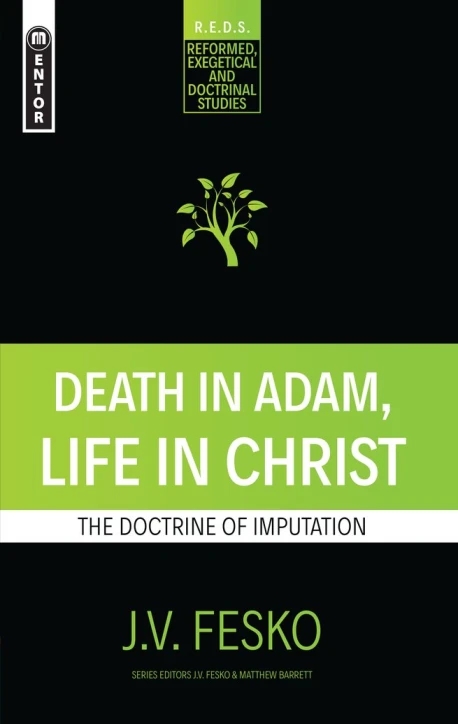Solus Christus
One of the Protestant Reformation’s five solas is solus Christus, or Christ alone. But what, exactly, does this sola mean and why is it still important to Christians five hundred years later? The answer to this question lies in the Reformation’s reawakening to the authority of Scripture, especially the Pauline epistles.

By J. V. Fesko
One of the Protestant Reformation’s five solas is solus Christus, or Christ alone. But what, exactly, does this sola mean and why is it still important to Christians five hundred years later? The answer to this question lies in the Reformation’s reawakening to the authority of Scripture, especially the Pauline epistles. Reformers like Martin Luther read Paul’s Epistle to the Galatians and saw that in the earliest days of the church, well–intended but nevertheless mistaken Christians thought that they needed to supplement the work of Christ. The false teachers in Galatia claimed that faith in Christ was necessary for salvation, but they also taught that the Gentile Christians needed to be circumcised. According to the false teachers salvation was a combination of faith and obedience. Paul responded quite forcefully and clearly that salvation was by faith alone in Christ alone (e.g., Gal. 3:10–14). This is where the theologians like Luther derived and created the Reformation slogans, solus Christus and sola fide.
When Luther and the reformers read Paul’s letter to Galatia and then looked around at their own theological context, they saw people in their own day trying to repeat the Galatian error. Rather than circumcision plus faith in Jesus, sixteenth–century Christians were trying to combine faith in Christ with their good works. The Roman Catholic Council of Trent (1545–65) was the official response to the Protestant Reformation and codified common beliefs such as the idea that God justifies people on the basis of faith in Christ and their good works. Trent, for example, states: “Justification itself, which is not remission of sins merely, but also the sanctification and renewal of the inward man” (Sixth session, chp. 7). This means that a person’s right standing before God rests both on the forgiveness of his sins and his sanctification, or his good works. In fact, Trent taught that people received their initial justification in their baptism and with this infusion of grace, they could then grow and increase in righteousness through their obedience so they could then be finally justified at the last judgment (Sixth session, chp. 10).
The reformers rejected such ideas because they recognized this was another version of the Galatian error. John Calvin, for example, writes: “Surely the material cause [of justification] is Christ, with his obedience through which he acquired righteousness for us” (Institutes, III.xiv.17). Or in the words of the famous hymn Rock of Ages:
Not the labors of my handscan fulfill thy law’s commands;could my zeal no respite know,could my tears forever flow,all for sin could not atone;thou must save, and thou alone. Nothing in my hand I bring,simply to the cross I cling;naked, come to thee for dress;helpless, look to thee for grace;foul, I to the fountain fly;wash me, Savior, or I die.
These poignant words capture the heart of solus Christus, namely, that God saves us by the work of Christ alone—only his perfect obedience to the law and suffering the penalty of the law’s violation constitutes the unbreakable and sole foundation for our salvation.
Some might think that all of these things are true, but believe that the Roman Catholic Church has changed and no longer rejects solus Christus. As popular as such sentiments might be, the truth is sadly different. The official teaching of the Roman Catholic Church remains committed to the proclamations of the Council of Trent (e.g., Catholic Catechism, §§ 1989, 2019, 1992, 2010). This means that solus Christus is still relevant even though five hundred years have passed since it was first forged in the fires of the Reformation. But even then, solus Christus will never cease to be relevant because it reminds us of the all–important biblical truth that Christ alone saves. This is certainly a message that was desperately needed on the heels of the sin of our first parents in the garden of Eden, in Paul’s day, during the sixteenth–century, in our own day, and until Christ returns.
J. V. Fesko is Academic Dean and Professor of Systematic and Historical Theology at Westminster Seminary in California. He is author of Death in Adam, Life in Christ: The Doctrine of Imputation.
It is available at local Christian bookshops, or online:
Buy Now: Amazon.com Amazon.co.uk ChristianBook Barnes & Noble
